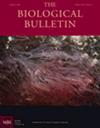海洋选择实验:关于海洋生物如何应对气候变化,实验进化能告诉我们什么?
IF 1.9
4区 生物学
Q2 BIOLOGY
引用次数: 8
摘要
快速进化可能为某些受气候变化威胁的物种提供了一种缓冲灭绝风险的机制;然而,对于大多数分类群来说,进化得足够快以跟上不断变化的环境的能力是未知的。气候适应的生态系统级后果可能在海洋生态系统中最为严重,在海洋生态系统中,具有大量有效种群规模的短命浮游植物构成了初级生产的大部分。然而,预测海洋系统中气候驱动的进化存在重大挑战,包括多个同时发生的变化轴和变化率的相当大的异质性,以及许多海洋后生动物的双相生命周期,这使不同的生命阶段暴露于不同的选择来源。应对这些挑战的一个关键工具是实验进化,在实验进化中,生物种群直接暴露于受控的选择来源,以测试进化反应。我们回顾了利用实验进化来测试海洋物种适应气候变化压力的能力。在过去的十年中,实验进化在这方面的应用得到了极大的发展,揭示了进化的能力、相关的权衡和耐压性状的遗传结构。我们的目标是强调这种方法在调查对气候变化的潜在反应方面的效用,并为未来的研究指明方向。本文章由计算机程序翻译,如有差异,请以英文原文为准。
Selection Experiments in the Sea: What Can Experimental Evolution Tell Us About How Marine Life Will Respond to Climate Change?
Rapid evolution may provide a buffer against extinction risk for some species threatened by climate change; however, the capacity to evolve rapidly enough to keep pace with changing environments is unknown for most taxa. The ecosystem-level consequences of climate adaptation are likely to be the largest in marine ecosystems, where short-lived phytoplankton with large effective population sizes make up the bulk of primary production. However, there are substantial challenges to predicting climate-driven evolution in marine systems, including multiple simultaneous axes of change and considerable heterogeneity in rates of change, as well as the biphasic life cycles of many marine metazoans, which expose different life stages to disparate sources of selection. A critical tool for addressing these challenges is experimental evolution, where populations of organisms are directly exposed to controlled sources of selection to test evolutionary responses. We review the use of experimental evolution to test the capacity to adapt to climate change stressors in marine species. The application of experimental evolution in this context has grown dramatically in the past decade, shedding light on the capacity for evolution, associated trade-offs, and the genetic architecture of stress-tolerance traits. Our goal is to highlight the utility of this approach for investigating potential responses to climate change and point a way forward for future studies.
求助全文
通过发布文献求助,成功后即可免费获取论文全文。
去求助
来源期刊

Biological Bulletin
生物-海洋与淡水生物学
CiteScore
3.30
自引率
6.20%
发文量
47
审稿时长
6-12 weeks
期刊介绍:
The Biological Bulletin disseminates novel scientific results in broadly related fields of biology in keeping with more than 100 years of a tradition of excellence. The Bulletin publishes outstanding original research with an overarching goal of explaining how organisms develop, function, and evolve in their natural environments. To that end, the journal publishes papers in the fields of Neurobiology and Behavior, Physiology and Biomechanics, Ecology and Evolution, Development and Reproduction, Cell Biology, Symbiosis and Systematics. The Bulletin emphasizes basic research on marine model systems but includes articles of an interdisciplinary nature when appropriate.
 求助内容:
求助内容: 应助结果提醒方式:
应助结果提醒方式:


